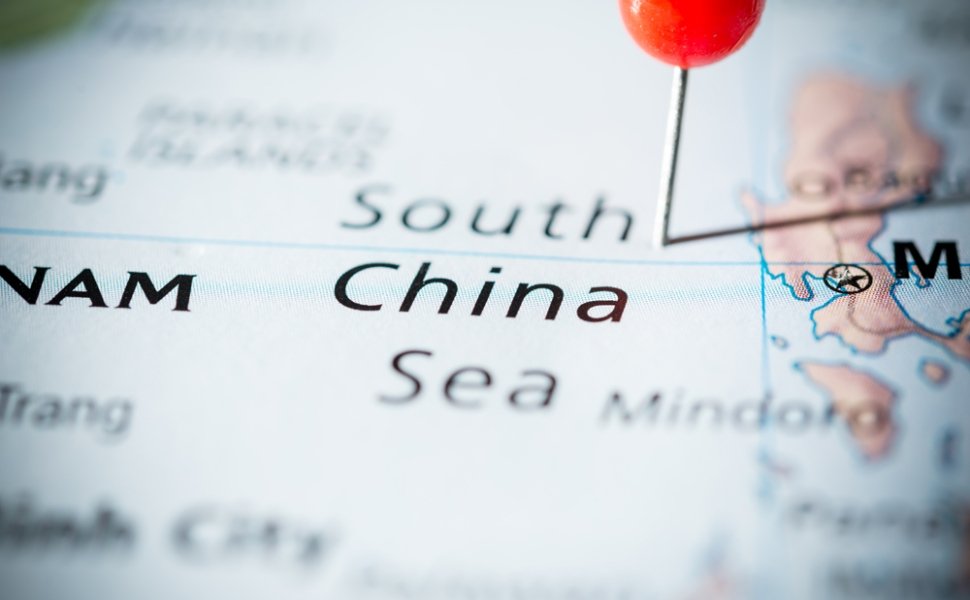Event Recap: Chinese Expansion and the South China Sea: Beijing’s Strategic Ambition and the Asian Order


China’s ambitions to become Asia’s undisputed regional hegemon is evident in the South China Sea, as Beijing creates military bases along remote reefs and islands in a 1.5-million-square mile expanse. Humphrey Hawksley, the author of Asian Waters: The Struggle Over the South China Sea and Strategy of Chinese Expansion, Los Angeles Times Deputy Washington Bureau Chief Bob Drogin, and former U.S. Deputy Assistant Secretary of Defense for Asia James Clad, spoke at the Wilson Center to discuss the rivalry between China and the United States, and the dilemma facing countries in the region.
Humphrey Hawksley started off the conversation with a story of a group of Filipino fishermen who were banned from fishing or doing other business by Chinese coast guards in Scarborough Shoal, where they have fished for decades. The fishermen were allowed back in the water only after President Duterte addressed the issue to President Xi over a signing ceremony in Beijing. This story showcases the impact of China’s expansion not just on big regional actors, but also on small communities.
What happened with the Filipino fishermen is a small part of China’s grand strategy, called “gentle maneuvering.” The Asia Program’s Senior Associate for Northeast Asia, Shihoko Goto, referred to China’s increasing push for its “One China” policy on multinational companies. Recently, multinational corporations from airlines to hotels issued public apologies for implying that Taiwan is a country. Hawksley criticized that the Western voice is too silent on this due to China’s economic leverage, as well as, the failure of the United States and other Asian nations including Brunei, Thailand, and Cambodia from confronting China’s misbehavior.
As for the constant the outlook for the U.S. Asia-Pacific strategy, Cladd remarked that the United States continues to operate as it has since 1945 as the resident power in Asia. However, the times have changed. This means that the United States needs to recognize the importance of avoiding “zero-sum gaming.” Unlike the past, in-between powers like Indonesia and Vietnam are working together a lot, and other bilateral connections, multilateral efforts, and alliance building have also sprung up in the region. Cladd suggested it imperative to understand that “when somebody is working quietly, they count.”
In terms of what is needed from the U.S. Indo-Pacific strategy, Cladd suggested taking advantage of the maritime realm, and highlighting the benefits of playing by the rules according to the United Nations Convention on the Law of the Sea (UNCLOS) instead of asking the Chinese government for permission. He also pointed out that the current administration needs a point person dealing with China. Goto further added that anchoring alliance with the Japanese, who has demonstrated willingness to do what they can to “lift the maritime strategy,” can provide an advantage to the rebalancing and U.S. commitment in Asia.
Lastly, Drogin shared his analysis of the Singapore Summit, and how it connects back to China. He viewed the event as a “win-win-win” for North Korea, the United States, and China, but not so much for South Korea and Japan. It was a win for North Korea because in exchange for their not-so-new vague promise to work towards complete denuclearization, President Trump conceded joint military exercises in South Korea, and legitimized Kim’s status both domestically and internationally. On the other hand, President Trump could now boast that he removed North Korea’s nuclear threat even though nothing has changed.
Perhaps the biggest victor was China, argued Drogin, adding that it was “no coincidence Kim flew in and out of Singapore on Air China planes.” After the Singapore meeting, China came out in the front with what it always wanted–a freeze for a freeze (referring to the exchange mentioned above). While Washington has brought Beijing and Pyongyang together, it widened its wedge with Seoul and Tokyo, Drogin added.
Listen to an audio recap of the event:
The views expressed are the author's alone, and do not represent the views of the U.S. Government or the Wilson Center. Copyright 2018, Asia Program. All rights reserved.
Guest

Indo-Pacific Program
The Indo-Pacific Program promotes policy debate and intellectual discussions on US interests in the Asia-Pacific as well as political, economic, security, and social issues relating to the world’s most populous and economically dynamic region. Read more


Hyundai Motor-Korea Foundation Center for Korean History and Public Policy
The Center for Korean History and Public Policy was established in 2015 with the generous support of the Hyundai Motor Company and the Korea Foundation to provide a coherent, long-term platform for improving historical understanding of Korea and informing the public policy debate on the Korean peninsula in the United States and beyond. Read more
